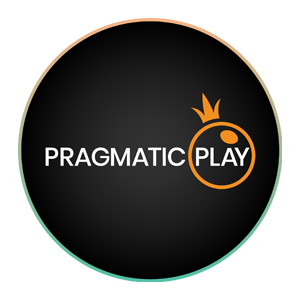มั่นใจทุกการทำกำไรกับเกม สล็อตเว็บตรง ของเรา บนเว็บนี้ที่บอกเลยว่ามีกำไรที่สูงที่สุด FAFA118 ให้กับนักพนันทุกท่านในการเลือกเข้าใช้บริการ สล็อตออนไลน์ ได้ทุกเวลา เพราะว่าการเริ่มต้นสมัครสมาชิกเข้ามาใช้บริการกับเราบนเว็บไซต์ สล็อต นี้สามารถให้นักพนันได้เลือกลงทุนด้วยประเภทการใช้บริการ เว็บตรงสล็อต ที่ง่ายที่สุด แน่นอน และยังสามารถช่วยให้นักพนันได้รับคำแนะนำในการเข้าใช้บริการไปกับ เว็บสล็อต ของเราที่นี่ ได้อย่างราบรื่น
ซึ่งในทุกอนิเมชั่นของเรา บน เว็บสล็อตใหม่ล่าสุด ที่นี่สามารถช่วยให้นักพนันได้ทำกำไรได้ง่ายที่สุด และยังสามารถช่วยให้นักพนันได้รับความลงตัวในการใช้บริการ สมัครเว็บสล็อต ของเราที่นี่ กันอีกด้วย เพราะว่าในแต่ละประเภทเกม เว็บสล็อต อันดับ 1 ของเราที่นี่ มีคำแนะนำพร้อมทั้งสูตรในการเข้าใช้บริการ สล็อตpgเว็บตรง เพื่อเพิ่มความรอบคอบ และความแม่นยำให้กับนักพนันในการเข้าร่วมลงทุนของเรา บนเว็บไซต์นี้ได้ทั้งหมด
รับประกันทุกการเข้าใช้งานกับเกม สล็อตเว็บตรง ของเรา บน สล็อตเว็บตรง แตกง่าย นี้ที่สามารถการันตีความมันอย่างจัดเต็มให้กับนักพนันได้ในทุกๆ รูปแบบกันเลยด้วยนอกจากนี้แล้วยังสามารถให้ความรวมตัวกับนักพนันในการเข้าใช้บริการ สล็อตเว็บตรงแตกหนัก กันได้อย่างเต็มที่ ซึ่งองค์ประกอบต่างๆ ในการเข้าใช้บริการ สล็อตเว็บตรง ฝาก-ถอน true wallet ไม่มี ขั้น ต่ํา ของเรา ที่ไม่มีลักษณะในการร่วมลงทุนที่นักพนันทุกท่านจะต้องคุ้นเคยไปกับทุก Animation แน่นอน
เรียกได้ว่ารูปแบบต่างๆ ในการเข้าใช้บริการของเรา บน สล็อตเว็บตรง ฝาก-ถอน true wallet ไม่มี ธนาคาร ไม่มี ขั้น ต่ํา นี้สามารถให้นักพนันได้เพลิดเพลินไปกับทุกการรับผลประโยชน์ สล็อต เว็บตรงไม่ผ่านเอเย่นต์ไม่มีขั้นต่ำ ของเราที่นี่ ได้จริง และยังสามารถให้การตอบโจทย์กับนักพนันได้ในทุกประเภทเกมอีกด้วยใน เพราะว่าเป็นการทำกำไรที่มีความรวดเร็วในการลงทุน สล็อตเว็บตรง ไม่ผ่านเอเย่นต์ ที่ง่ายที่สุด และยังสามารถให้คำแนะนำเพื่อเพิ่มผลกำไรให้กับนักพนันได้ดีอย่างสม่ำเสมอด้วย
ใช้บริการทำกำไรกับประเภทเกม สล็อตเว็บตรง FAFA118 ของเราที่นี่ บอกเลยว่าคุณจะต้องมั่นใจไปกับทุกการลงทุนของเรา ได้มากที่สุด แน่นอน เพราะว่าเกม เว็บตรง สล็อตฝากถอน ไม่มี ขั้นต่ำ 1 บาทก็ ถอนได้ ของเรา บนเว็บไซต์นี้ในทุกๆ ประเภทนั้นสามารถให้นักพนันได้เลือกใช้งานกับเกมที่มีความเหมาะสมกับคุณไม่ว่าจะเป็นการเหมาะสมทั้งฝีมือ และการเหมาะสมทำความคุ้นเคยต่างๆ ในแต่ละ Animation นั้นสามารถให้การตอบโจทย์นักพนันได้อย่างครบวงจร
สำหรับใครที่ได้เข้ามาสัมผัสความสนุกกับ เว็บตรง100 ของเราที่นี่ แล้วก็รับรองได้เลยว่าคุณจะต้องไม่อยากเปลี่ยนใจกันไปไหนอีกอย่างแน่นอน เพราะว่าความสนุกบน เว็บตรงไม่ผ่านเอเย่นต์ 100 นี้สามารถให้นักพนันได้ลงทุนได้ในรูปแบบที่มีความอิสระมากที่สุด ในทุกการใช้งานแน่นอน และยังสามารถช่วยให้นักพนันได้ทำกำไรได้ง่าย และเยอะที่สุด ในทุกประเภทเกม เว็บตรง ฝากถอน ไม่มี ขั้นต่ำ ของเรา เลยด้วย
ทำเงินกันอย่างรวดเร็วแน่นอน เมื่อคุณได้รู้จักกับ 6 ค่ายเกม สล็อตเว็บตรง ของเรา เหล่านี้ ซึ่งต้องบอกเลยว่าในแต่ละค่ายเกม สล็อตเว็บตรงไม่ผ่านเอเย่นต์ 2023 ของเรา นั้นเป็นค่ายที่การันตีการรับเงินรางวัลที่เยอะที่สุด ให้กับนักพนันทุกท่านในการเข้าใช้บริการได้จริง และยังสามารถช่วยให้นักพนันได้ถอนกำไรออกไปจากค่ายเกม สล็อตเว็บตรงไม่ผ่านเอเย่นต์ ของเรา เหล่านี้กันได้ทุกวันอีกด้วยนั่นเอง เพราะว่าในแต่ละเกมของเรา นั้นมีเงินรางวัลให้กับคุณได้ไม่น้อย
เพียงแค่เข้ามาใช้บริการกับค่ายเกม สล็อตเว็บตรง อันดับ 1 ของเรา เหล่านี้ไม่กี่วินาทีก็สามารถรับรางวัลก้อนโตกันออกไปได้แล้ว เพราะว่าค่ายเกม สล็อตเว็บตรงแตกง่าย ของเราที่นี่ ในแต่ละค่ายนั้นมีทั้งเงินรางวัลแจ็คพอต และเงินรางวัลโบนัสฟรีพิเศษให้กับนักพนันได้เลือกรับกันได้อย่างจุใจมากๆ แน่นอน และยังสามารถช่วยให้นักพนันได้เลือกลงทุน สล็อตเว็บตรง pg ไม่ผ่านเอเย่นต์ ด้วยเคล็ดลับพิเศษของเรา อีกมากมาย

นักพนันที่กำลังตามหาเกมสล็อตที่มีอัตราการชนะสูงถึง 99% บอกได้หรือว่าค่ายเกมนี้ตอบโจทย์อย่างแน่นอน โดยค่ายเกมนี้เป็นค่ายเกมที่ให้บริการเกมสล็อตที่มีอัตราการชนะสูงถึง 99% ไม่ว่าคุณจะมีวิธีการเล่นแบบไหนคุณก็จะสามารถได้รับกำไรกับใบเต็มกระเป๋าอย่างแน่นอน รับรองได้เลยว่าทำเงินได้ง่ายอย่างแน่นอน

เกมสล็อตรูปแบบใหม่ที่คุณไม่เคยได้พบเจอจากที่ไหนคุณสามารถเข้ามาพบเจอกับค่ายเกมนี้ได้เลยโดยค่ายเกมนี้เป็นค่ายเกมที่ให้บริการเกมสล็อตรูปแบบใหม่ๆ ที่คุณไม่เคยได้สัมผัสจากที่ไหนมาก่อนนักพนันคนไหนที่กำลังตามหาความสนุกที่แตกต่างจากเดิมบอกได้เลยว่าเข้ามาใช้บริการในค่ายเกมนี้คุณจะได้รับความสนุกที่มากกว่าเดิมแน่นอน

จัดเต็มกับโปรโมชั่นสำหรับนักพนันที่เข้ามาใช้บริการในค่ายเกมนี้ต้องบอกได้เลยว่าเป็นโปรโมชั่นที่ไม่สามารถปฏิเสธได้อย่างแน่นอน เพราะเป็นโปรโมชั่นที่จะมอบทั้งเครดิตฟรี และโบนัสฟรีมากมายให้กับนักพนันที่เข้ามาใช้บริการในค่ายเกมนี้ ซึ่งบอกได้เลยว่าจะทำให้คุณถ้าไม่ต้องใช้ทุนตัวเอง ในการเริ่มต้นในการใช้บริการในค่ายเกมนี้

อิสระในการลงเงินพนันกำลังรอคุณอยู่แล้วในค่ายเกมนี้โดยค่ายเกมนี้เปิดโอกาสให้คุณสามารถลงเงินพนันด้วยจำนวนเงินเท่าไหร่ก็ได้แบบไม่มีขั้นต่ำโดยคุณสามารถกำหนดงบประมาณในการใช้บริการในค่ายเกมนี้ได้อย่างอิสระเลยรับรองได้เลยว่านักพนันคนไหนที่กำลังมองหาการลงทุนแบบไม่มีข้อจำกัดใดๆ ทั้งสิ้นต้องถูกใจ

เพิ่มโอกาสในการรับเงินรางวัลในค่ายเกมนี้ได้ง่ายๆ เพราะค่ายเกมนี้มีการนำเสนอรูปแบบเทคนิคการเล่นในเกมต่างๆ ที่สามารถได้รับกำไรเพิ่มมากขึ้นกว่าเดิมให้คุณได้ทำความเข้าใจอยู่นั่นเอง ซึ่งเพียงคุณทำความเข้าใจกับเทคนิคในค่ายเกมนี้เพียงเท่านี้คุณก็สามารถทำเงินได้มากกว่าเดิมได้ง่ายๆ เลย

ฟีเจอร์ใหม่ที่จะมามอบตัวคุณกำไรให้กับคุณได้ตลอดการใช้บริการต้องค่ายเกมนี้เลยที่มีการอัพเดทฟีเจอร์ใหม่ๆ มาให้คุณได้สัมผัสเพื่อการทำเงินที่ดีขึ้น และได้รับความสนุกที่แตกต่างมากกว่าเดิม ซึ่งนักพนันคนไหนกำลังมองหาฟีเจอร์พิเศษรูปแบบใหม่ๆ ที่คุณไม่เคยพบเจอจากที่ไหนมาก่อนต้องเข้ามาใช้บริการในค่ายเกมนี้เลย
เป้าหมายการลงทุนของคุณจะต้องได้รับอย่างครบถ้วนแน่นอน เมื่อเลือกใช้งานกับเกม สล็อตเว็บตรง ของเรา FAFA118 เหล่านี้นั่นเอง ต้องบอกเลยว่าเป็นรายชื่อเกม เว็บสล็อตออนไลน์ ที่ดีที่สุด ที่สามารถทำเงินให้กับนักพนันได้กันแบบสุดปังแน่นอน โดยที่เป็นระบบไหลลื่นที่สุด ไม่มีการสะดุดได้เลยแม้แต่นิดเดียวแถมยังสามารถช่วยให้นักพนันทุกท่านได้ทำกำไรกันได้ตลอดทั้งวันที่เข้ามาใช้บริการกับเกม ปั่นสล็อต ของเรา เหล่านี้ด้วย
รับรองได้เลยว่าทุกการใช้งานกับเกม สล็อตออนไลน์ ได้เงินจริง ของเราที่นี่ จะสามารถให้ลักษณะที่ดีที่สุด กับนักพนันในการเข้าใช้บริการได้แน่นอน เพราะว่าทุก Animation ของเราที่นี่ เป็นเวอร์ชั่นใหม่ล่าสุดที่สามารถให้ โปรโมชั่นสล็อต ความล้ำสมัยกับนักพนันในการเข้าใช้บริการ สล็อตเครดิตฟรี ได้จริง และยังสามารถให้การลงเดิมพันกับนักพนันได้อย่างเต็มที่ในทุกประเภทการใช้งานของเรา ด้วย
สำหรับนักพนันที่กำลังเริ่มต้นเล่นเกมสล็อตเราแนะนำให้คุณเข้ามาใช้บริการในเกมนี้เลย เพราะเกมนี้เป็นเกมที่สามารถทำการจับคู่สัญลักษณ์ได้ง่ายมากๆ ซึ่งฟีเจอร์ที่โดดเด่นของเกมนี้คือต้นไม้ใหญ่ที่ได้รวบรวมผลไม้ต่างๆ หลากหลายชนิดไว้ในต้นเดียวกันเพียงคุณทำการจับคู่สัญลักษณ์ตามที่เรากำหนดคุณก็จะพบกับสัญลักษณ์รูปผลไม้ทองคำที่ให้เงินล้านกับคุณได้ง่ายๆ
เกมเดิมพันที่เป็นที่นิยมที่สุด ในจีนตอนนี้ต้องเกมนี้เลยหรือเกมนี้ถูกดัดแปลงมาจากความเชื่อของคนจีนเกี่ยวกับทวยเทพ ซึ่งในขณะที่คุณทำการจับคู่สัญลักษณ์จะมีทวยเทพมานำโชคนำลาภให้กับคนในการใช้บริการ ซึ่งนักพนันคนไหนที่มีความเชื่อเกี่ยวกับเทพบอกได้เลยว่าเกมนี้สามารถดลบันดาลกำไรกับคุณได้อย่างแน่นอน
เตรียมพบกับการจับคู่สัญลักษณ์สุดดั้งเดิมของตู้สล็อตในคาสิโนจริงๆ ได้แล้วกับเกมนี้ ซึ่งเกมนี้ถูกดัดแปลงมาจากตู้สล็อตจริงๆ ที่มีรูปแบบการจับคู่สัญลักษณ์ที่เหมือนกันทุกรูปแบบ ซึ่งจะทำให้คุณได้รับอรรถรส และอารมณ์เหมือนกับการที่คุณไปเล่นอยู่ที่ตู้สล็อตในคาสิโนจริงๆ ได้ 100% แน่นอน รับรองได้เลยว่าสนุกไปกับรูปแบบคลาสสิคได้ทุกวัน
นักพนันที่ชื่นชอบขนมหวานหรือลูกอมแคนดี้บอกได้เลยว่าเกมนี้สามารถตอบโจทย์ได้อย่างแน่นอน เพราะเกมนี้จะทำให้คุณตะลุยไปกับดินแดนขนมหวานที่มีสีสันสดใสที่มาพร้อมกับอัตราการจ่ายเงินรางวัลที่สูงที่สุด ในตอนนี้ ซึ่งบอกได้เลยว่ารูปแบบเกมนี้เป็นรูปแบบที่จะทำให้คุณดื่มด่ำไปกับสิ่งที่คุณชอบได้
ใครที่ชื่นชอบเกี่ยวกับการทำสงครามหรือชื่นชอบตัวละครลิโป้บอกได้เลยว่าเกมนี้จะทำให้คุณพบเจอกับตัวละครที่คุณชื่นชอบได้อย่างแน่นอน เพราะสัญลักษณ์หลักในการจับคู่สัญลักษณ์คือการจับคู่สัญลักษณ์แม่ทัพลิโป้นั่นเอง ซึ่งบอกได้เลยว่าเป็นการจับคู่สัญลักษณ์ที่จะทำให้คุณเพลิดเพลินไปกับตัวละครที่คุณชื่นชอบ
เพียงคุณทำการจับคู่สัญลักษณ์ยักษ์ในตะเกียงแก้วในเกมนี้ได้คุณก็สามารถขอพรได้ 1 ข้อไม่ว่าคุณจะขอเป็นตัวคุณกำไรหรือโบนัสพิเศษสามารถขอได้เลยในทันทีจึงบอกได้เลยว่ารูปแบบเกมนี้ดัดแปลงมาจากเทพนิยาย และการ์ตูนยอดฮิตอย่างยักษ์ในตะเกียงแก้วที่จะทำให้คุณย้อนวัยไปถึงการ์ตูนวัยเด็กที่คุณชื่นชอบได้ง่ายๆ
จัดเต็มได้ทุกรูปแบบ สล็อตเว็บตรง แน่นอน ว่าคุณได้มีเทคนิค และเคล็ดลับที่ดีที่สุด ในการทำเงินของเราที่นี่ นั่นเอง ต้องบอกเลยว่าสายปั่น สล็อตวอเลท ไม่มีขั้นต่ํา นั้นไม่ควรจะต้องพลาดกับการใช้เคล็ดลับในการเข้าร่วมด้วยในเกมโดยเด็ดขาด เพราะว่าการเข้าใช้บริการไปกับเว็บไซต์เกม สล็อตวอเลท เว็บตรง ของเราที่นี่ จะสามารถทำให้คุณได้รับการตอบโจทย์ได้จริงเมื่อมีเคล็ดลับของเรา เป็นตัวช่วยจะทำให้คุณได้ผลลัพธ์ที่เยอะมากยิ่งขึ้น
อัตราความผันผวนในการใช้งานกับเกม สล็อต ฝาก-ถอน true wallet ไม่มี บัญชีธนาคาร ของเราที่นี่ นั้นต้องบอกเลยว่ามีอัตราการชนะที่สูงที่สุด สามารถให้นักพนันได้ใช้บริการได้ในทุกประเภทเกมของเรา โดยที่ไม่ต้องกังวลต่อการขาดทุนเลยทั้งสิ้น เพราะในทุกเกมของเรา มีโอกาสในการชนะที่สูงที่สุด จากการสังเกตค่า rtp ที่เกินกว่า 95% นั่นเอง
การใช้งานเริ่มต้นวางเดิมพันกับเกม รวมเว็บสล็อต ฝาก-ถอน true wallet ของเราที่นี่ นักพนันสามารถเริ่มต้นในการเข้าใช้บริการด้วยอัตราเงินทุนขั้นต่ำเพียงแค่ 1 บาทเท่านั้นเอง และสามารถเริ่มต้นในการเข้าใช้บริการด้วยทุกๆ 5 นาที ซึ่งเป็นเทคนิคการไต่ระดับที่ดีที่สุด
หลังจากที่คุณได้รับเมกาโบนัสในเกม สล็อตฝากถอน true wallet ไม่มี ขั้นต่ำ แล้วก็บอกเลยว่าคุณจะต้องเปลี่ยนเกมในการเข้าใช้บริการโดยทันที เพราะโอกาสที่คุณจะได้รับรางวัลก้อนโตอีกครั้งนั้นค่อนข้างที่จะยากมากๆ ฉะนั้นแล้วการเปลี่ยนเกมจะทำให้คุณได้มีโอกาสในการรับรางวัลใหญ่อีกครั้งแน่นอน
เปิดโอกาสการลงทุนกับเกม สล็อตเว็บตรง ของเราที่นี่ บอกเลยว่าจัดหนักจัดเต็มกันได้ในทุกผลรางวัลแน่นอน เพราะว่าเหตุผลในการเข้าใช้บริการกับเกม สล็อตฝากถอน true wallet เว็บตรง ของเราที่นี่ นั้นสามารถให้นักพนันได้ไว้วางใจกับการลงทุนได้มากยิ่งขึ้นแน่นอน ซึ่งในทุกๆ การเข้าใช้บริการของเราที่นี่ สามารถให้นักพนันได้ใช้บริการได้ในทุกประเภทที่คุณต้องการ และยังสามารถให้ความน่าสนใจอย่างหลากหลายกับนักพนันได้ด้วย
สำหรับการรับรองทุกการใช้บริการกับเกมสล็อตของเราที่นี่ นั้นต้องบอกเลยว่ามีการรับรองการใช้บริการกับหลากหลายผลัดความเลยด้วยกันไม่ว่าจะเป็นระบบ iOS หรือว่า Android ก็สามารถเข้ามาใช้บริการได้ตลอด 24 ชั่วโมง เพราะเราไม่มีการหยุดพักใดๆ
ประเภทในการใช้งานกับเกม สล็อตทรูวอเลท ของเรา บนเว็บไซต์นี้นั้นมีให้คุณได้เลือกเข้าใช้บริการมากกว่า 1000 รูปแบบกันเลยด้วยนั่นเอง ซึ่งเป็นฟังก์ชันในการเข้าใช้บริการที่สามารถเลือกลงทุนได้อย่างเป็นอิสระโดยที่ไม่ถูกจำกัดใดๆ ในการเข้าใช้บริการได้เลยด้วย
ระบบการวางเดิมพันกับเกม สล็อตเว็บตรงวอเลท ของเราที่นี่ เป็นระบบที่มีความทันสมัยสูงสุดในการเข้าใช้บริการสามารถปรับยอดในการเลือกลงทุนที่รวดเร็วที่สุด โดยที่นักพนันจะต้องไม่รอนานอีกต่อไปแน่นอน ไม่ว่าจะเป็นการฝากหรือการถอนสามารถทำรายการได้เสร็จสิ้นภายในเวลาเพียงแค่ไม่เกิน 15 วินาที
ความบันเทิงอย่างถึงขีดสุดบนเว็บเกม สล็อตเว็บตรง ของเราที่นี่ มีให้คุณได้พบเจอทุกวันแน่นอน สำหรับการเข้าใช้บริการกับเกม สล็อตฝากถอนวอเลท ของเรา ที่มีอยู่หลากหลายรูปแบบ และหลากหลายฟังก์ชันบนเว็บไซต์นี้ ซึ่งต้องบอกเลยว่าในทุกประเภทเกมของเรา ทีนี้มีความนิยมสูงสุดให้กับนักพนันได้เลือกเข้าใช้บริการทั้งหมด และยังสามารถให้นักพนันได้ลงทุนกันได้ทุกเกมแบบไม่มีขีดจำกัดด้วย
สำหรับสมาชิกใหม่ที่สมัครเข้ามาใช้บริการกับเกมสล็อตของเราที่นี่ นั้นต้องบอกเลยว่าสามารถเริ่มต้นในการใช้บริการด้วยการฝากยอดเข้าในครั้งแรกมีขั้นต่ำเพียงแค่ 1 บาทเท่านั้นเอง ต้องบอกเลยว่าเป็นขั้นต่ำที่สามารถใช้งานได้ทุกคนแน่นอน
ระดับความปลอดภัยในการก็ใช้บริการบนเว็บเกมสล็อตของเรา ที่มีนั้นต้องบอกเลยว่ามีความปลอดภัย ระดับ 100% กันเลยด้วย เพราะว่าทุกการเข้าใช้บริการของเราที่นี่ ใช้เป็นระบบอัตโนมัติทั้งหมดที่มีความปลอดภัยระดับสูง
สำหรับมือใหม่ในการร่วมลงทุนกับเว็บเกมสล็อตของเราที่นี่ นั้นต้องบอกเลยว่าสามารถเริ่มต้นในการควบใช้บริการด้วยอัตราเงินทุนขั้นต่ำได้ และยังสามารถเลือกใช้บริการด้วยประเภทเกมที่คุณคุ้นเคยได้ด้วย เพราะเราไม่มีการจำกัด
เตรียมพร้อมในการรับความสนุกของคุณกันได้อย่างเต็มที่ด้วยเกม สล็อตเว็บตรง ของเรา บนเว็บนี้ บอกเลยว่าทุกการทำเงิน เว็บสล็อตใหม่ล่าสุด ของเราที่นี่ จะสามารถให้นักพนันได้ทำกำไรได้สูงที่สุด โดยที่ไม่มีการขาดทุนใดๆ แน่นอน เพราะว่าในทุกประเภทเกม สล็อต ของเราที่นี่ จะมีตัวช่วยที่ดีที่สุด ให้กับนักพนันในการเข้าใช้บริการ สมัครสมาชิก สล็อตเว็บตรง ทั้งหมด และยังสามารถให้ฟีเจอร์การซื้อฟรีสปินที่เป็นตัวช่วยพิเศษในเกมของเรา ได้ด้วย